Turner back on top with second U17 title; India wins 2 golds
Thursday, July 31, 2025 - 20:30 By Vinay Siwach
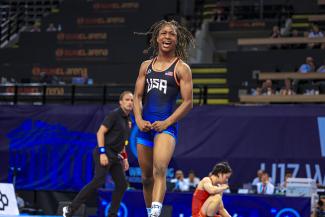
ATHENS, Greece (July 31) -- There have been dominant runs in Women's Wrestling at the World U17 Championships history and now Morgan TURNER (USA) has joined that list as well.
After winning the world title in 2023, Turner had to be satisfied with a bronze medal in 2024. However, that bronze made Turner more determined to end her U17 age-group career on high.
Wrestling at the U17 Worlds for the third time, Turner won her second world title at this age-group. She won the 49kg gold medal in Athens, Greece on Thursday, giving United States the first gold of the tournament.
"I definitely wanted to come back harder coming from bronze last year," Turner said. So my goal was to win it. I just preparing eventually, physically and emotionally. The bronze shadowed over the gold. So I had to come back and I had to get gold. I love it."
Turner, facing Yu KATAOKA (JPN) in the 49kg final, showed how to counter those Japanese low-single attacks. Every time Kataoka tried to go for them, Tuner would sit low and block with counterattacks.
Kataoka even tried getting behind but Turner held such good positions that she was able to counter and score, eventually winning 6-1. In four bouts, the final was the only one in which did not finish with technical superiority.
Now with two golds, Turner said that Thursday's gold proved that she has evolved as a wrestler and could perform moves other than the double-legs that she has been famous for.
"Two years ago was a lot a lot more nerves. I was on cloud nine. I was 14. I was super nervous," she said. "I feel like I need to grow as a wrestler. I left the double. I don't need to do a double all the time. I can shoot sweeps. I can do little singles. I can do cradles, I can do throws, I can do different things."
With her U17 career finished, Turner will now be focused on U20 and perhaps the senior level as well.
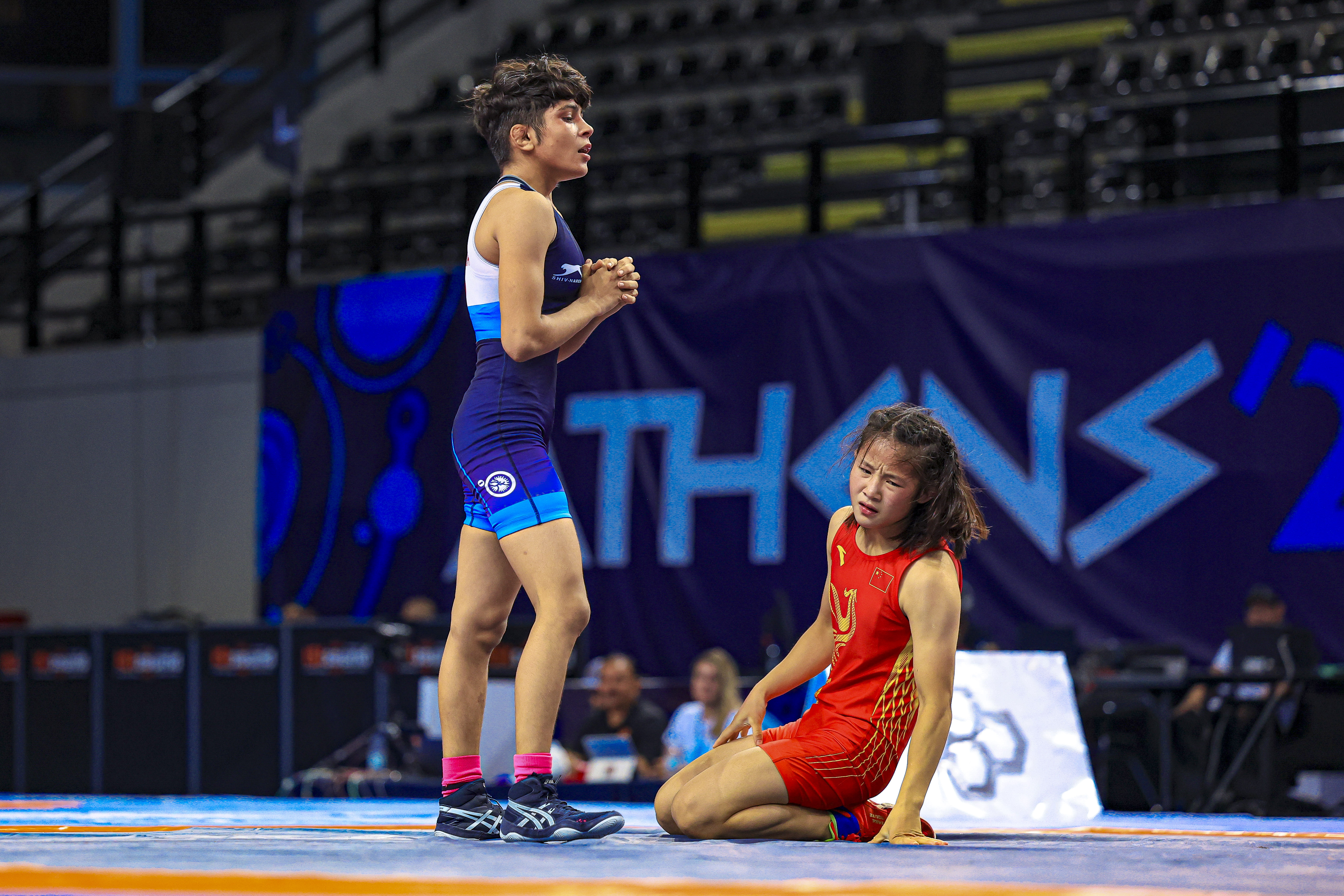
Mixed day for India
India, the defending team champions, had a mixed day in the field. It had four wrestlers in the finals but only two came back with gold medals.
Former world U17 silver medalist RACHNA (IND) held her own lead against Xin HUANG (CHN) and secured the gold medal at 43kg. She scored a takedown in the first period to lead 2-0 and Huang was called passive in the second to give one more point to Rachna.
Huang did get a couple of attacks going but was not able to finish. Rachana's gold was the first for India of the night.
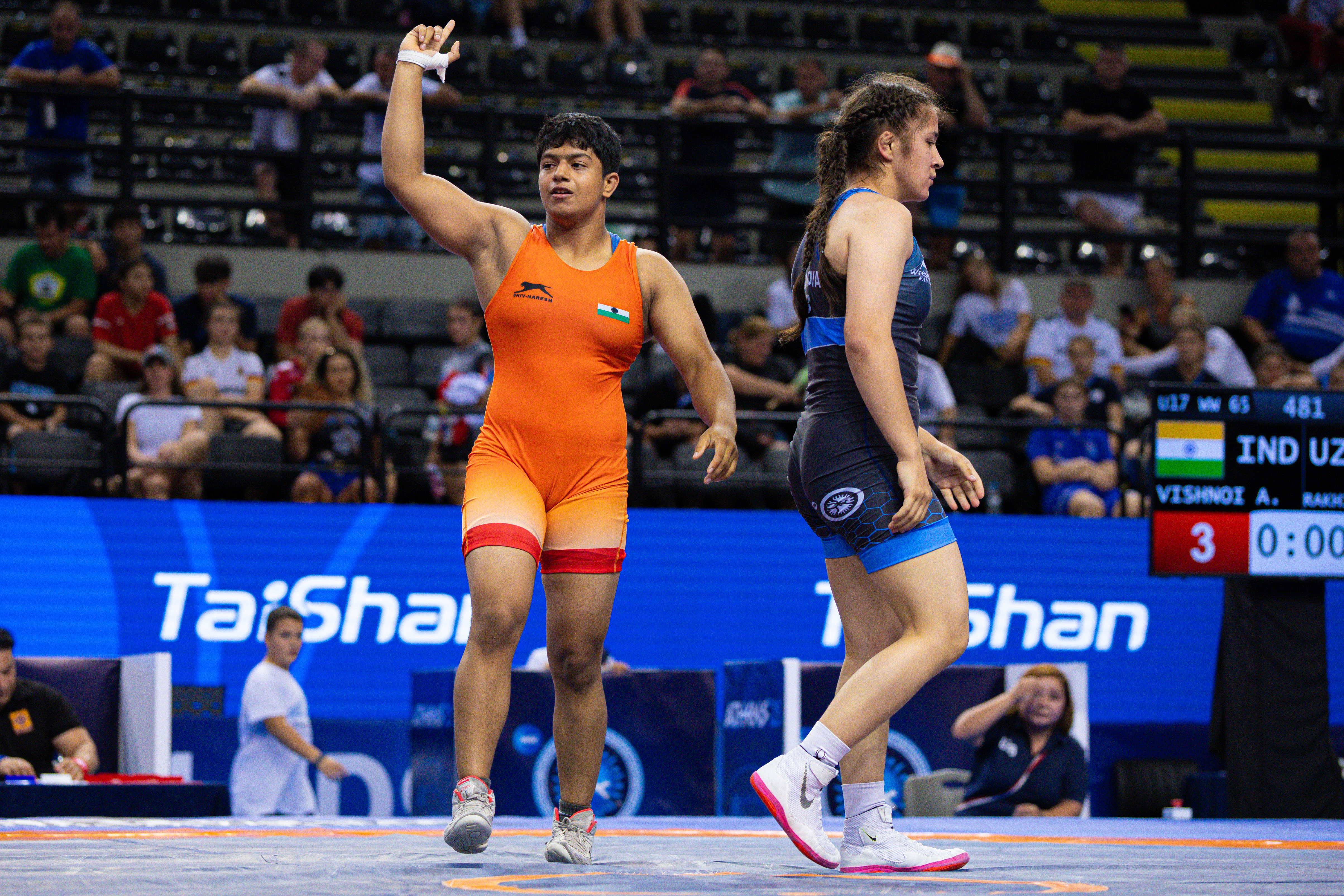
Two-time Asian U17 champion Ashvini VISHNOI (IND) added the second as she defeated Mukhayyo RAKHIMJONOVA (UZB) at 65kg with a similar score and scoring actions. With the win, Vishnoi also denied Rakhimjonova a chance of history as she could have become the first-ever world champion for Uzbekistan in Women's Wrestling at any level.
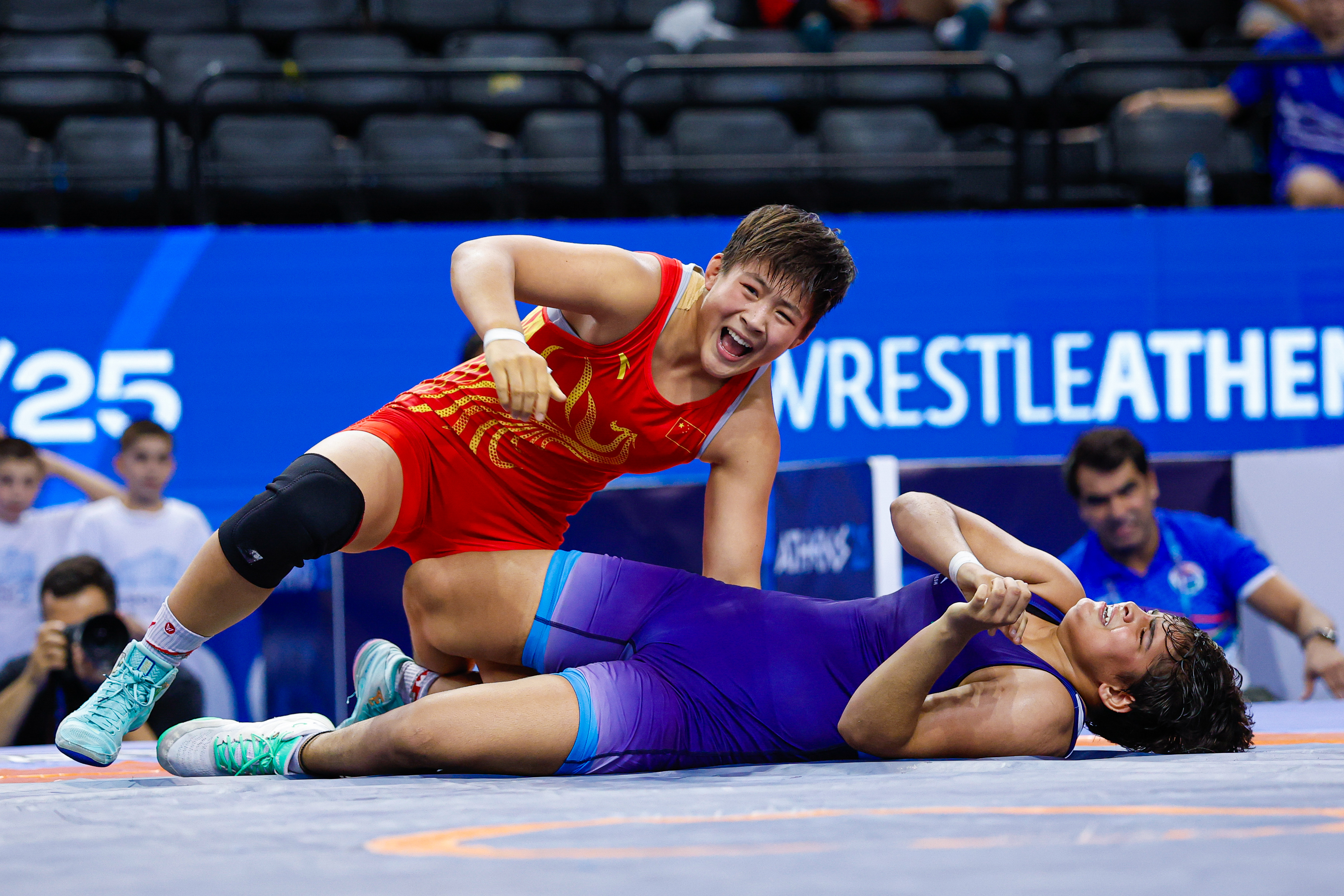
Returning world U17 champion from 69kg KAJAL (IND), now at 73kg, suffered a loss to Wenjin QIU (CHN) in the final. This was Kajal's second loss in two months to Qiu who had defeated the Indian 10-0 in the Asian U17 Championships final in Vietnam.
Kajal began on an attacking note and raced to a 4-0 lead with two takedowns. However, in the second period, Qiu was able to counter better. Qiu scored a four-pointer and then exposure as she was looking to pin Kajal. After the sequence, Qiu led 6-5.
Still, Kajal got Qiu locked from behind and was about to throw her for four points but the Chinese managed to block that and land Kajal in danger for two points, extending her lead to 8-5, which became the winning score for her.
The second loss for India came in the 57kg final after a bizarre sequence of events. MONI (IND), who won the Asian U17 gold over Madkhiya USMANOVA (KAZ), faced her again in the finals in Athens.
Moni scored the first takedown of the bout but Usmanova hit a headlock for four to lead 4-2. The scramble continued and Moni got a point for reversal. However, Usmanov got another exposure for two more points and led 6-3 as the referee asked the wrestlers to return to center.
Moni does a double arm lock throw for two points to cut the lead to 6-5 with just over a minute left in the bout. Moni, who perhaps thought that she was leading the bout, did not engage with Usmanova for the next 50 seconds. Even Usmanova, who was leading, did not bother to get into a tangle.
Ultimately, Moni went for the attack with only 10 seconds left but Usmanova was not letting her score with gold on line. With her 6-5 win, Usmanova became the first Women's Wrestling world champion for Kazakhstan in 13 years and avenged her loss to Moni from the Asian U17 Championships final.
RESULTS
43kg
GOLD: RACHANA (IND) df. Xin HUANG (CHN), 3-0
BRONZE: Madison HEALEY (USA) df. Mareim ABDELAAL (EGY), via fall
BRONZE: Inzhu BAKKOZHA (KAZ) df. Raniia RAKHMANOVA (UWW), via fall
49kg
GOLD: Morgan TURNER (USA) df. Yu KATAOKA (JPN), 6-1
BRONZE: Polina BOCHKAREVA (UWW) df. Azema KALIDINOVA (KGZ), 6-6
BRONZE: Komal VERMA (IND) df. Anhelina BURKINA (UWW), 8-3
57kg
GOLD: Madkhiya USMANOVA (KAZ) df. MONI (IND), 6-5
BRONZE: Sayuki TANADA (JPN) df. Sophie RITTER (ITA), 4-4
BRONZE: Alina BAROEVA (UWW) df. Marta MANKOWSKA (POL), 6-1
65kg
GOLD: Ashvini VISHNOI (IND) df. Mukhayyo RAKHIMJONOVA (UZB), 3-0
BRONZE: Feenja HERMANN (GER) df. Alexandra MOISEI (MDA), 4-2
BRONZE: Lilia ERMOKHINA (UWW) df. Anujin ERKHEMBAATAR (MGL), 9-2
73kg
GOLD: Wenjin QIU (CHN) df. KAJAL (IND), 8-5
BRONZE: Ella Jo POALILLO (USA) df. Anna GODELASHVILI (GEO), via fall
BRONZE: Eylem ENGIN (TUR) df. Deborah GARCIA (MEX), 9-1

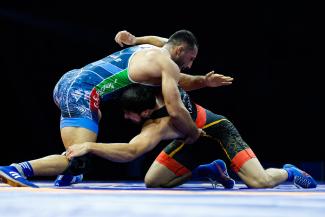
Share your thoughts.
Comments